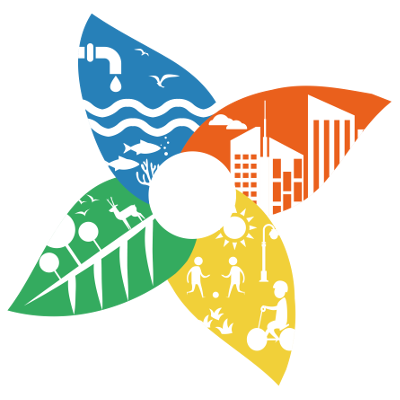Catching the spirit of the time
Already from the introduction given by Mihai-Razvan Nitä, Associate Professor at the University of Bucharest, it was clear that Naturvation catches the spirit of the time. ‘Green’ was presented as a tool to respond to (societal) challenges while providing multiple benefits to society.
Knowledge on this topic does not seem to be the problem, but how to communicate and implement this knowledge? “Are policy makers receiving our knowledge? Is our knowledge understandable for users outside the research community?” To provide a platform where scientists, public administration, policy makers and other stakeholders can come together and exchange their experiences was presented by various case studies during the workshop as a crucial element for sustainable urban planning. Naturvation was therefore very much welcome and supports the need to mainstream NBS/Green Infrastructure.
Common language and different perspectives
The workshop was attended by an international and diverse group of researchers presenting on different perspectives and aspects of urban NBS. The concept of ecosystem services was used by various participants as a tool to translate their specific research (e.g. on soil mites in urban parks) into a more common understanding (e.g. supporting soil fertility). This allowed an easy communication between the different participants, which continued till late at night.
The idea of ecosystem services was also used to address the multi-functionality of urban NBS, “a selling point”, although still often neglected in the urban planning process. Interestingly, various examples of disservices (e.g. pollen and allergies) were mentioned. “Urban green might not always benefit people!” However, what is good or bad can be a matter of debate as an example of invasive alien species in Bucharest showed: while in the city of Bucharest alien trees are highly appreciated by people (‘tree of heaven’), outside the city the tree invades sensitive habitats driving Romanian’s loss of biodiversity.
A real benefit
Another interesting part of the program took place in the streets of Bucharest, where we had the opportunity to learn about the city’s green elements and wonder about the possible NBS interventions. While walking through the city’s parks we felt at least one benefit from NBS: the shade of the trees was a welcome outdoors refuge while the Mediterranean sun was working hard to heat up sidewalks and buildings.
The workshop was organized by the Centre for Environmental Research and Impact Studies (CCMESI), Faculty of Geography – University of Bucharest and Society of Urban Ecology (SURE).
Clara Veerkamp, Maarten van Schie and Sara Rocha are Researchers at PBL Netherlands Environmental Assessment Agency (PBL) and the Central European University (CEU) working on the NATURVATION project.
